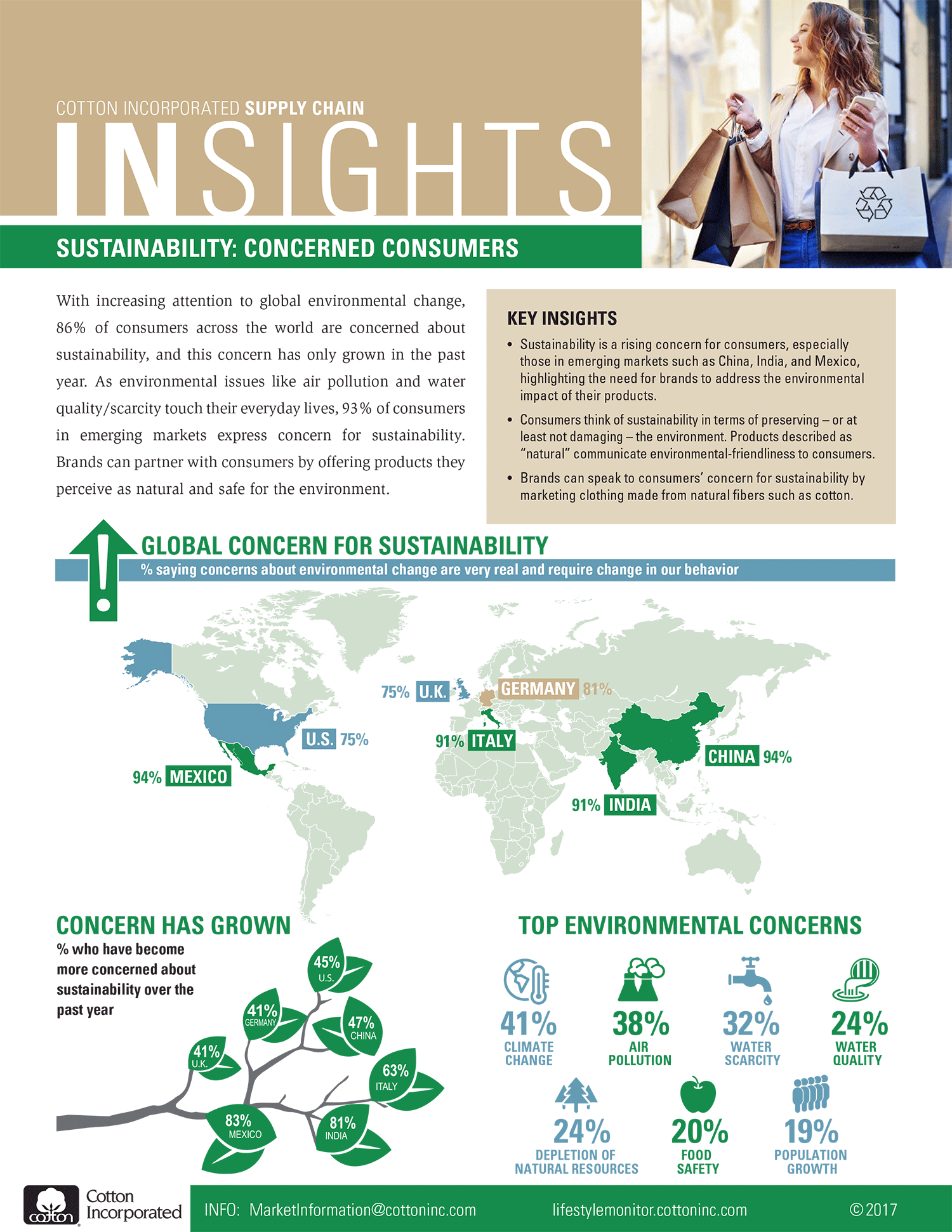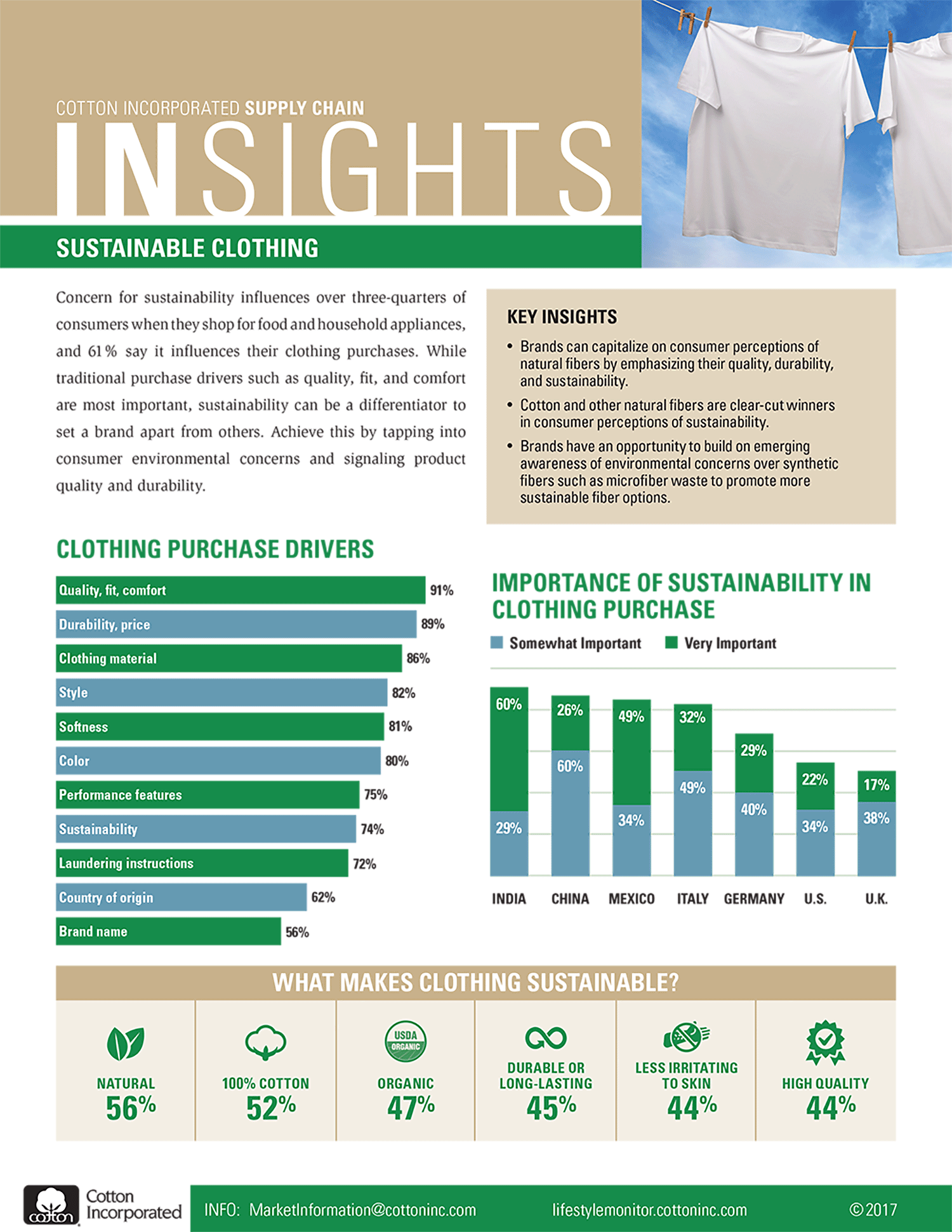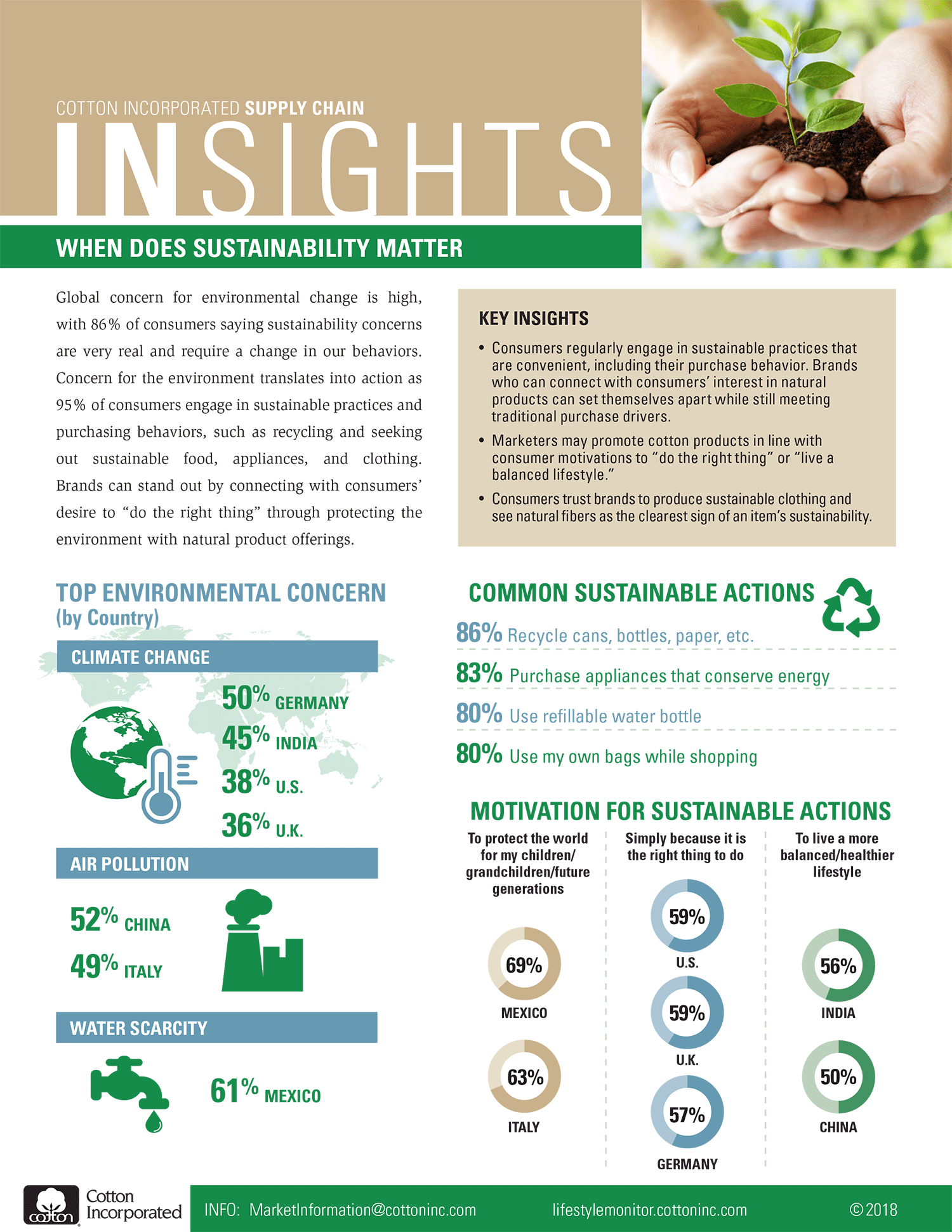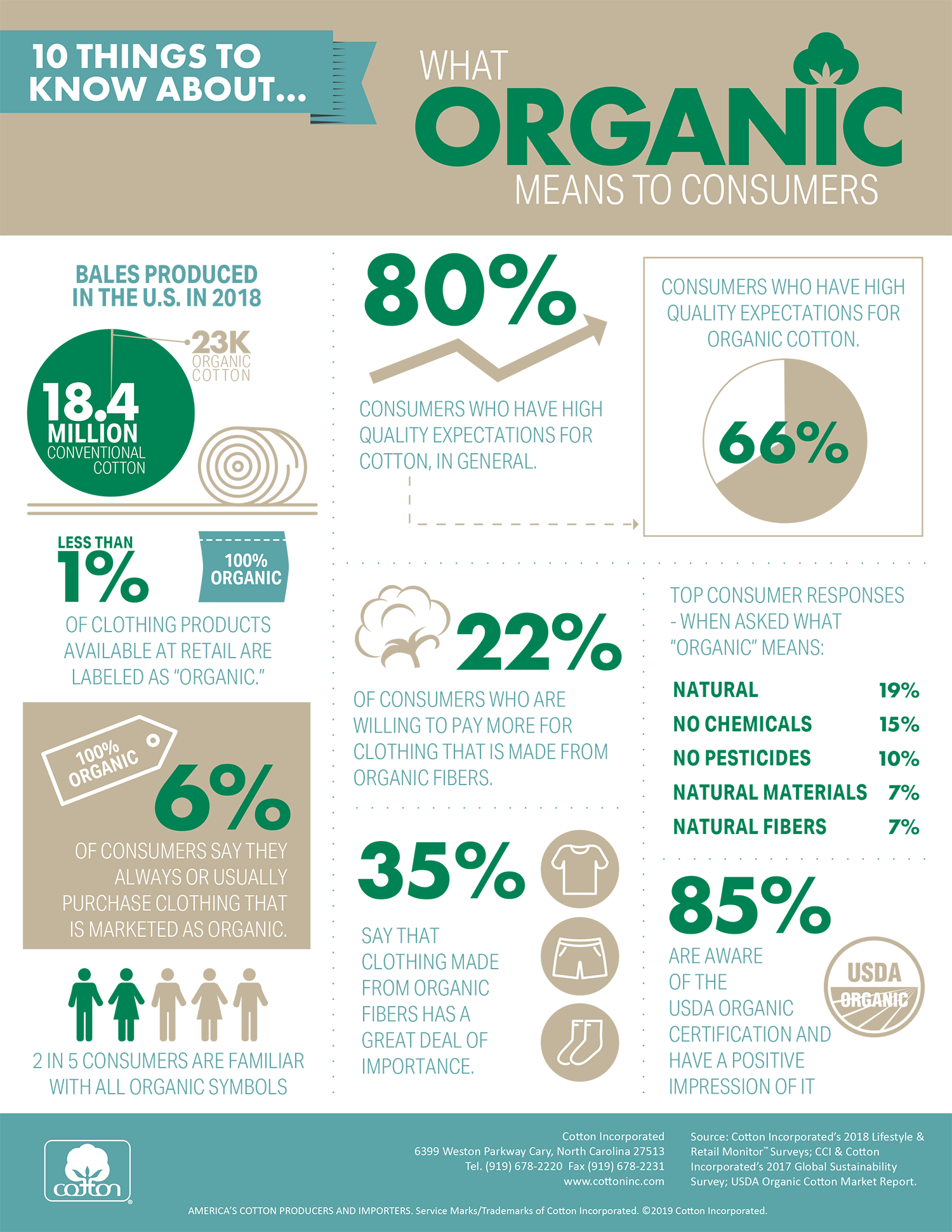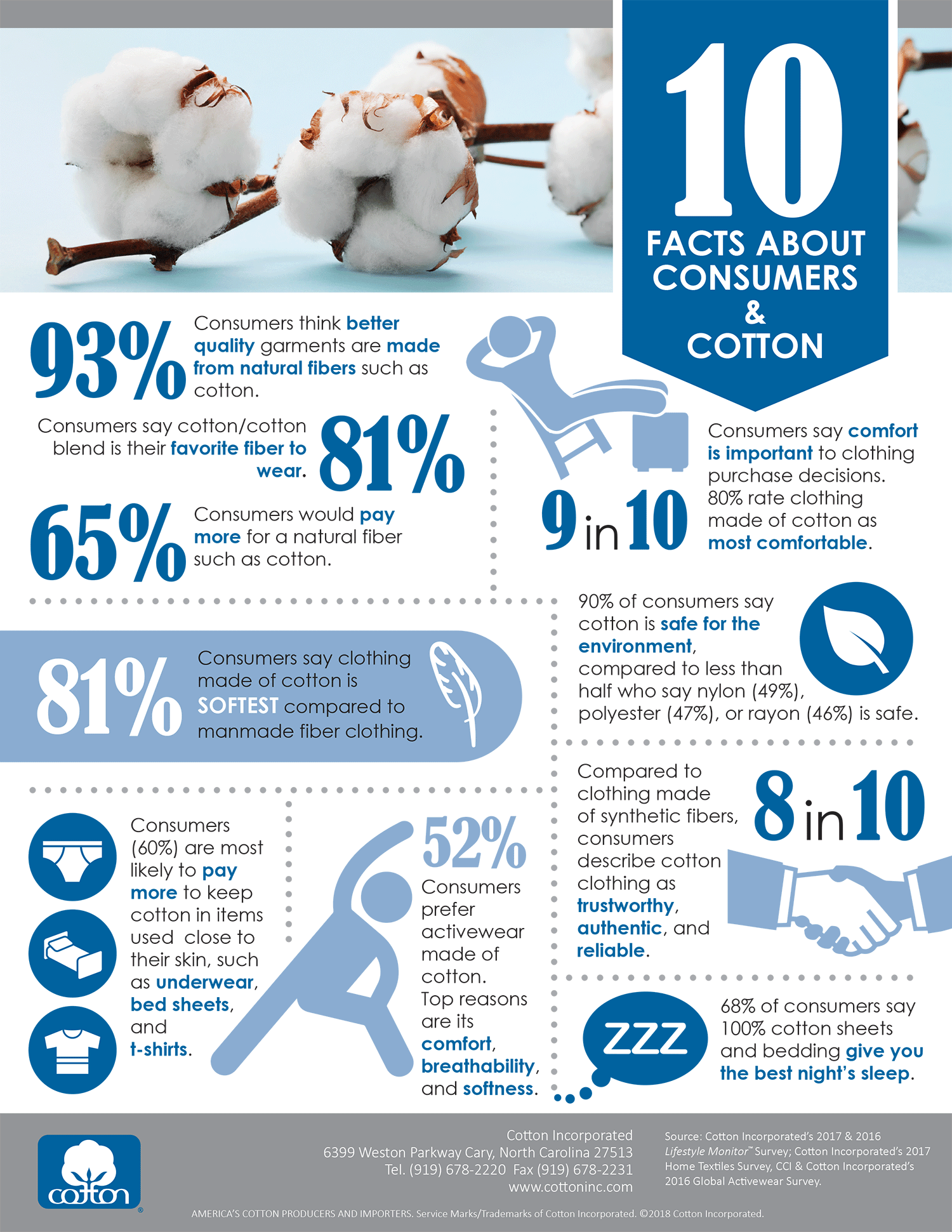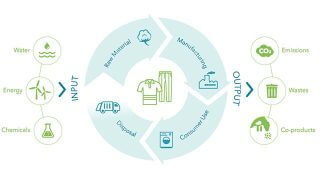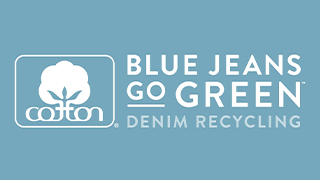Consumer Perceptions
Cotton & Consumers
Take a look into consumer perceptions relating to cotton and cotton sustainability. The foundation of every Insights issue linked below is the exclusive analysis of global data collected from a range of ongoing Cotton Incorporated research, supplemented with secondary data from credible industry and government sources.
Sustainability: Concerned Consumers
With increasing attention to global environmental change, 86% of consumers across the world are concerned about sustainability, and this concern has only grown in the past year. As environmental issues like air pollution and water quality/scarcity touch their everyday lives, 93% of consumers in emerging markets express concern for sustainability. Brands can partner with consumers by offering products they perceive as natural and safe for the environment.
Key Insights
- Sustainability is a rising concern for consumers, especially those in emerging markets such as China, India, and Mexico, highlighting the need for brands to address the environmental impact of their products.
- Consumers think of sustainability in terms of preserving—or at least not damaging—the environment. Products described as “natural” communicate environmental-friendliness to consumers.
- Brands can speak to consumers’ concern for sustainability by marketing clothing made from natural fibers such as cotton.
Sustainable Clothing
Concern for sustainability influences over three-quarters of consumers when they shop for food and household appliances and 61% say it influences their clothing purchases. While traditional purchase drivers such as quality, fit, and comfort are most important, sustainability can be a differentiator to set a brand apart from others. Achieve this by tapping into consumer environmental concerns and signaling product quality and durability.
Key Insights
- Brands can capitalize on consumer perceptions of natural fibers by emphasizing their quality, durability, and sustainability.
- Cotton and other natural fibers are clear-cut winners in consumer perceptions of sustainability.
- Brands have an opportunity to build on emerging awareness of environmental concerns over synthetic fibers such as microfiber waste to promote more sustainable fiber options.
When Does Sustainability Matter?
Global concern for environmental change is high, with 86% of consumers saying sustainability concerns are very real and require a change in our behaviors. Concern for the environment translates into action as 95% of consumers engage in sustainable practices and purchasing behaviors, such as recycling and seeking out sustainable food, appliances, and clothing. Brands can stand out by connecting with consumers’ desire to “do the right thing” through protecting the environment with natural product offerings.
Key Insights
- Consumers regularly engage in sustainable practices that are convenient, including their purchase behavior. Brands that can connect with consumers’ interest in natural products can set themselves apart while still meeting traditional purchase drivers.
- Marketers may promote cotton products in line with consumer motivations to “do the right thing” or “live a balanced lifestyle.”
- Consumers trust brands to produce sustainable clothing and see natural fibers as the clearest sign of an item’s sustainability.
What Organic Means to Consumers
- Bales produced in the U.S. in 2018 consisted of 18.4 million bales of conventional cotton and 23 thousand bales of organic cotton.
- 80% of consumers have high-quality expectations for cotton in general while 66% of consumers have high-quality expectations for organic cotton.
- Less than 1% of clothing products available at retail are labeled as “organic.”
- 22% of consumers are willing to pay more for clothing that is made from organic fibers.
- 6% of consumers say they always or usually purchase clothing that is marketed as organic.
- Top consumer responses when asked what “organic” means:
- 19% – Natural
- 15% – No Chemicals
- 10% – No Pesticides
- 7% – Natural Materials
- 7% – Natural Fibers
- 2 in 5 consumers are familiar with all organic symbols.
- 35% of consumers say that clothing made from organic fibers has a great deal of importance.
- 85% are aware of the USDA organic certification and have a positive impression of it.
10 Facts About Consumers & Cotton
- 93% of consumers think better quality garments are made from natural fibers such as cotton.
- 81% of consumers say cotton/cotton blend is their favorite fiber to wear.
- 61% of consumers would pay more for a natural fiber such as cotton.
- 81% of consumers say clothing made of cotton is softest compared to man-made fiber clothing.
- 60% of consumers are more likely to pay more to keep cotton in items used close to their skin, such as underwear, bedsheets, and t-shirts.
- 52% of consumers prefer activewear made of cotton. The top reasons are its comfort, breathability, and softness.
- 9 in 10 consumers say comfort is important to clothing purchase decisions while 80% rate clothing made of cotton as the most comfortable.
- 90% of consumers say cotton is safe for the environment.
- 8 in 10 consumers describe cotton clothing as trustworthy, authentic, and reliable compared to clothing made of synthetic fibers.
- 68% of consumers say 100% cotton sheets and bedding give you the best night’s sleep.
